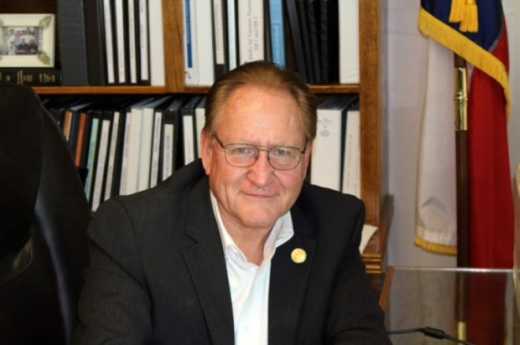Updated 9:30 a.m. April 29: Community Impact Newspaper reached out to Gov. Greg Abbott's office April 28 for clarification on the governor's order. A spokesperson for the governor sent a link to a Fox26 news clip in response. In this Fox26 interview, Abbott said he understands why his order might have been misinterpreted, and he will issue a clarification.
Jason Millsaps, chief of staff for Montgomery County Judge Mark Keough, said in an email April 29: "At this time the governor has not issued a clarified order. The county’s stance has not changed until we receive an written order that clearly orders these businesses to close."
According to Montgomery County officials’ interpretation of a recent state order, all Montgomery County businesses—including salons, gyms and bars—may be allowed to open May 1.
On April 27, Gov. Greg Abbott issued an order to gradually ease restrictions meant to curb the spread of coronavirus, beginning with allowing retail stores, restaurants, movie theaters and malls to reopen May 1 statewide with no more than 25% occupancy. In mid-May, the state will assess if other businesses such as barber shops and gyms can open.
But at the April 28 Commissioners Court meeting, County Judge Mark Keough said he interpreted the order as meaning individuals should use their discretion when visiting businesses beginning May 1. Keough’s interpretation centered on the wording of the order, which states for individuals to avoid visiting certain businesses, rather than clearly stating these establishments must close. The order states: “People shall avoid visiting bars, gyms, public swimming pools, interactive amusement venues such as bowling alleys and video arcades, massage establishments, tattoo studios, piercing studios or cosmetology salons.”
According to county officials, while ordering businesses to close—as Abbott has previously ordered—is enforceable, ordering individuals to avoid certain businesses is not. Counties cannot pass orders that supersede the governor’s, but county officials said they believe they are in line with Abbott’s order.
“The objective is not to go rogue on the state of Texas nor on the governor,” Keough said. “[The order] is vague, and on Friday when this thing comes off, we are going to assume these establishments are open.”
Unless Abbott issues clarification before May 1, all Montgomery County businesses may open if they desire, Keough said—although there could be legal issues if the county interprets the law differently from the state or licensing agency.
“So if we open up a couple barbershops in Magnolia, nobody’s going to come shut them down?” Precinct 2 Commissioner Charlie Riley asked.
“That’s correct,” Keough said.
But if a licensing agency interprets the governor’s order differently from Montgomery County, then it could potentially result in legal trouble for some businesses that open May 1, such as barber shops, County Attorney BD Griffin said.
“I would not want a barbershop to take the comments here or the county’s interpretation ... to be able to do something that their regulatory agency may not allow,” Griffin said. “[Say an] agency comes, jerks their license. Next thing you know not only is the state of Texas sued, Montgomery County is sued.”
Keough said he believes this still drives home the point that Abbott’s order leaves room for interpretation, possibly to allow counties the opportunity to make their own rules.
However, an April 28 news release from Texas Department of Licensing & Regulation stated that all salons shall continue to remain closed, whether a salon or shop is a sole proprietorship or not.
Sheriff Rand Henderson said his office will continue following the same guidelines as they have before—opting for voluntary compliance rather than arrests—although it was not made clear in the meeting if this guarantees no legal consequence for businesses that decide to open May 1.
“We’re not going to go in and make mass arrests at a barbershop, but for public health purposes ... I would discourage [individuals] from violating those orders although they are not enforceable,” he said. “We are still dealing with this crisis.”
Precinct 3 Commissioner James Noack chimed in with his own thoughts on law enforcement's role in enforcing the order.
“There’s no doubt our law enforcement has better things to do than go into establishments and start counting how many men and women are in a restaurant or getting their hair cut, for heaven’s sake,” he said.
Keough said he believes the order designates some businesses as “winners”—malls, theaters and restaurants—since they can open earlier, while designating some as “losers.”
“I’m not trying to push against the governor, I’m trying to free the people here who are designated as losers,” he said. “We’re just going to assume it’s not an order, its advice. And guess what, we’re going to leave it up to the citizens of Montgomery County.”
Commissioners were largely in agreement that the county had effectively flattened the curve and prevented local hospitals from being overburdened, and it is time to reopen businesses.
“We have more than adequate supply of ventilators in the event that [the number of cases] doubles or even triples," Keough said. "We are operating at 25, 30% capacity [in our hospitals]. ... We have taken very, very clear precautions."
Still, Riley said the possibility of multiple interpretations of Abbott’s order worried him.
“People listening to this are going to be confused Friday morning who can open up, who’s not opening up,” he said.
According to the agenda, commissioners discussed an item labeled "Consultation with county attorney regarding the legal risk and potential liability in connection with Coronavirus (COVID-19)" in closed session.





